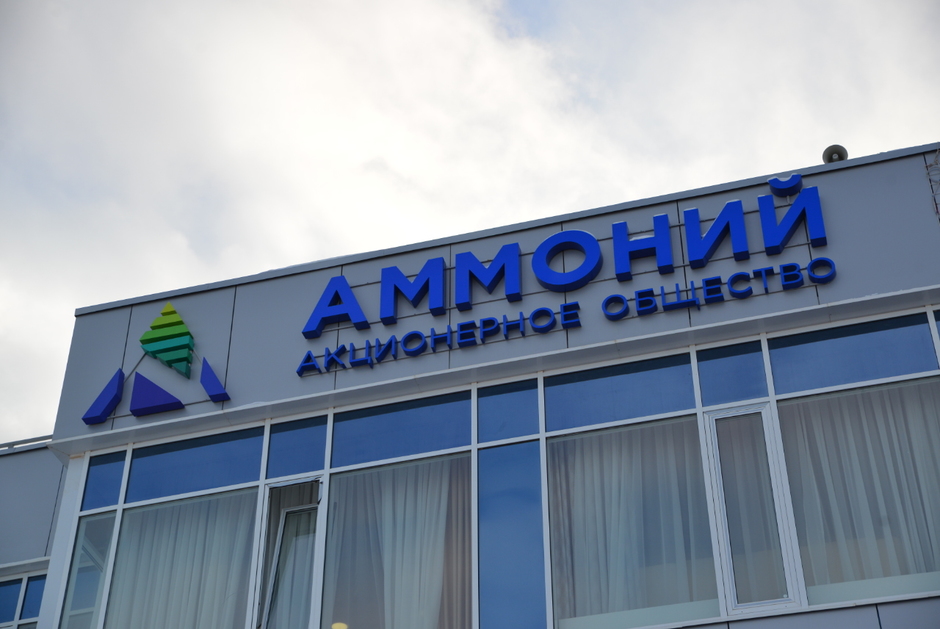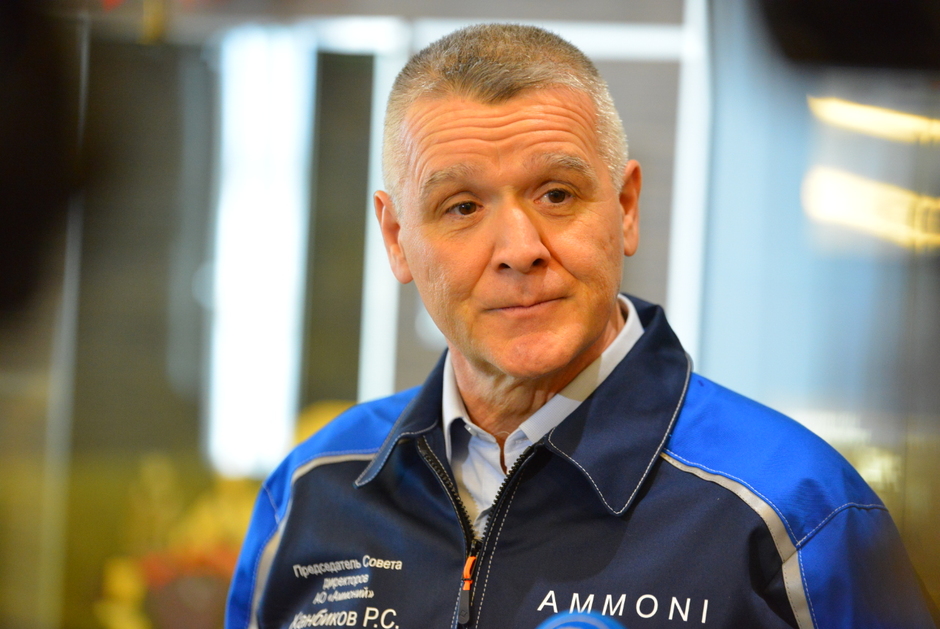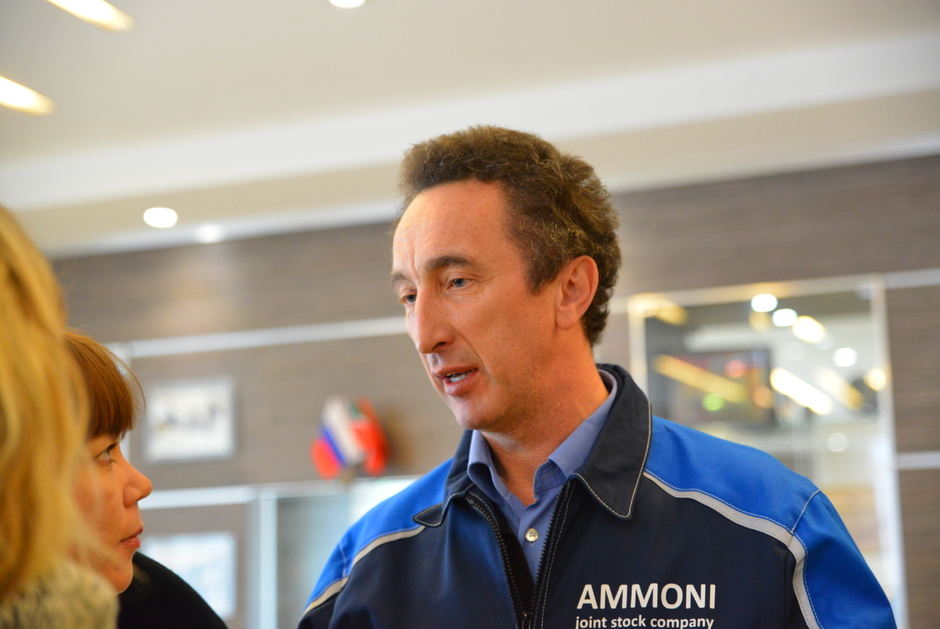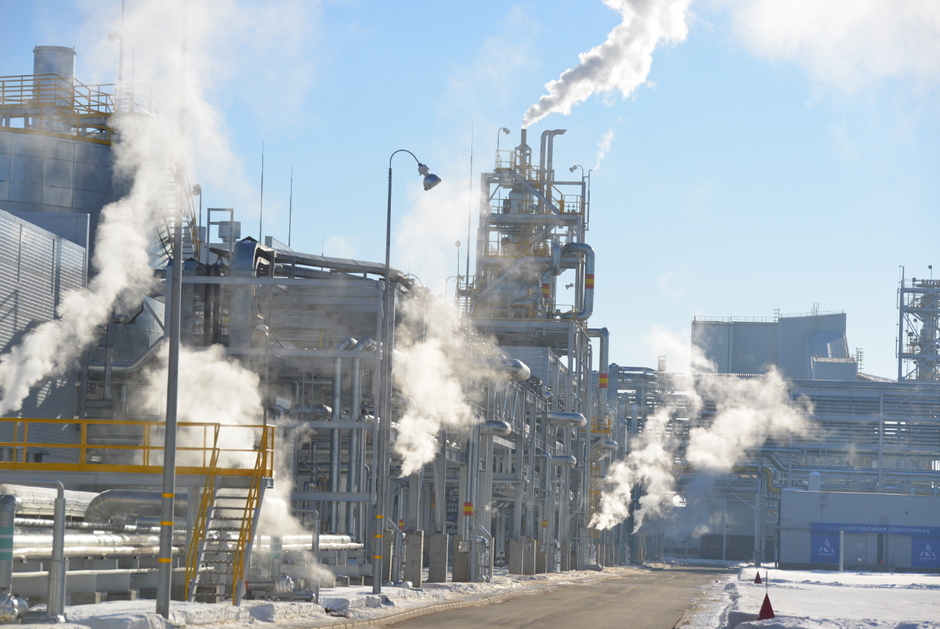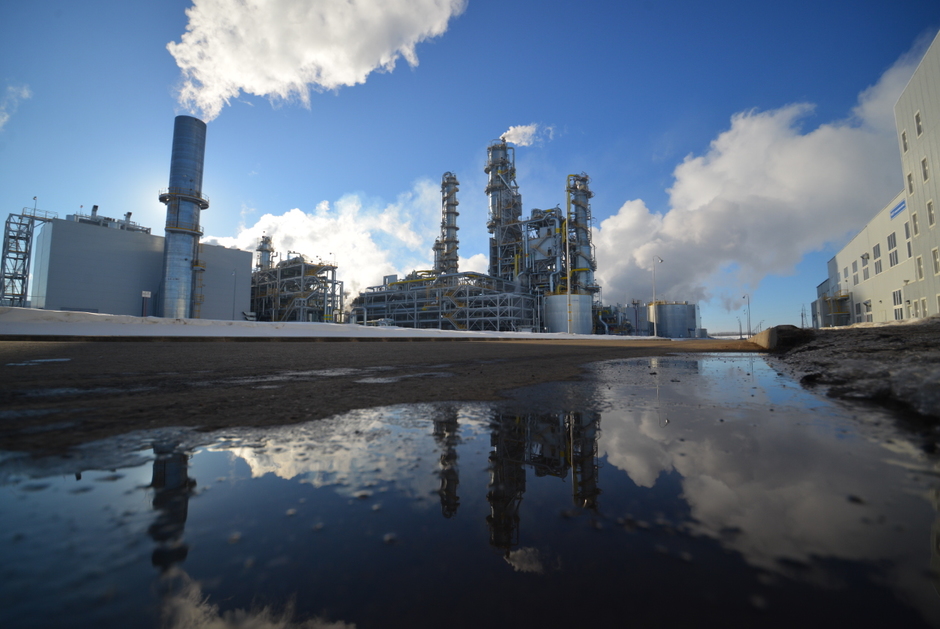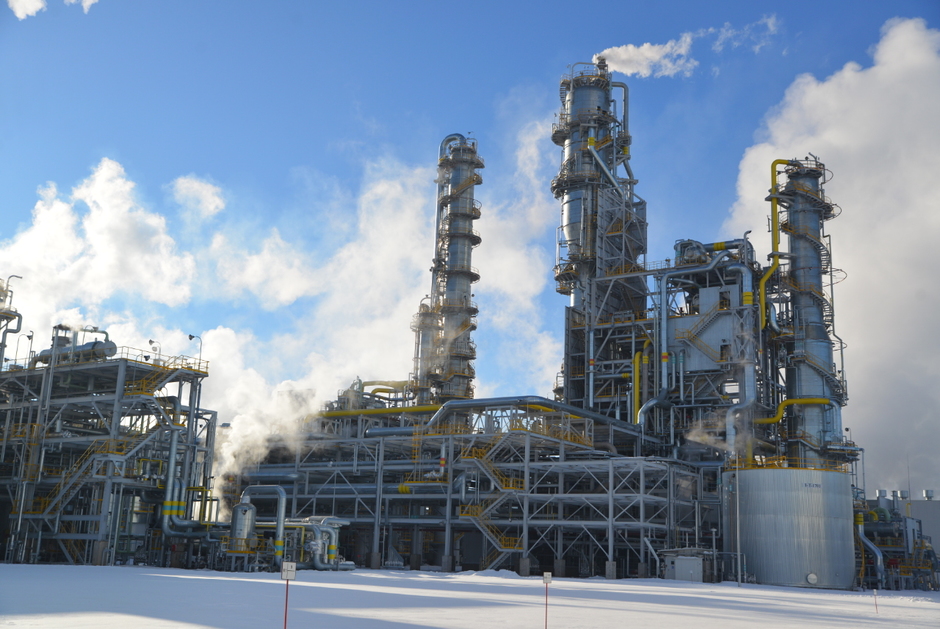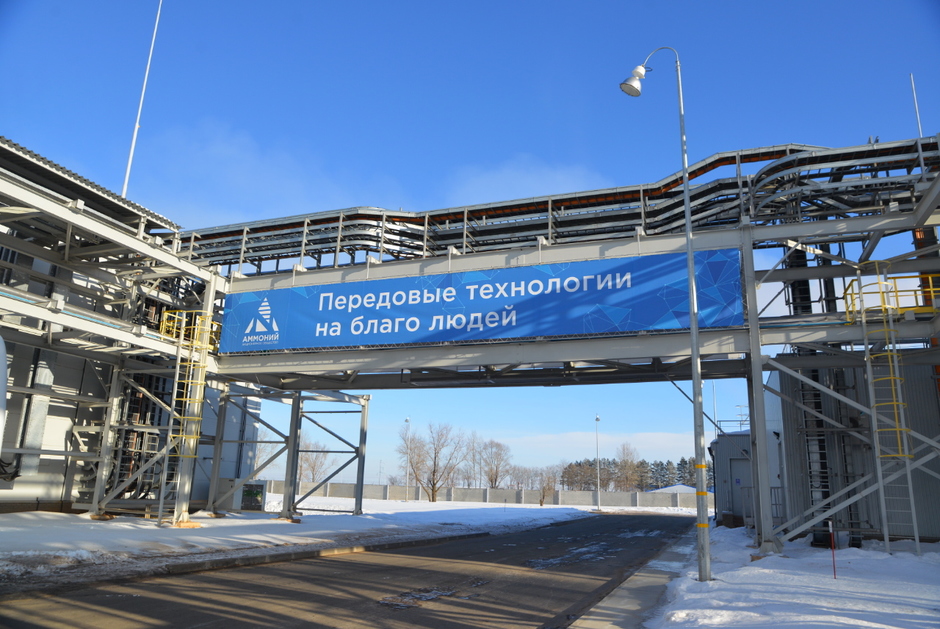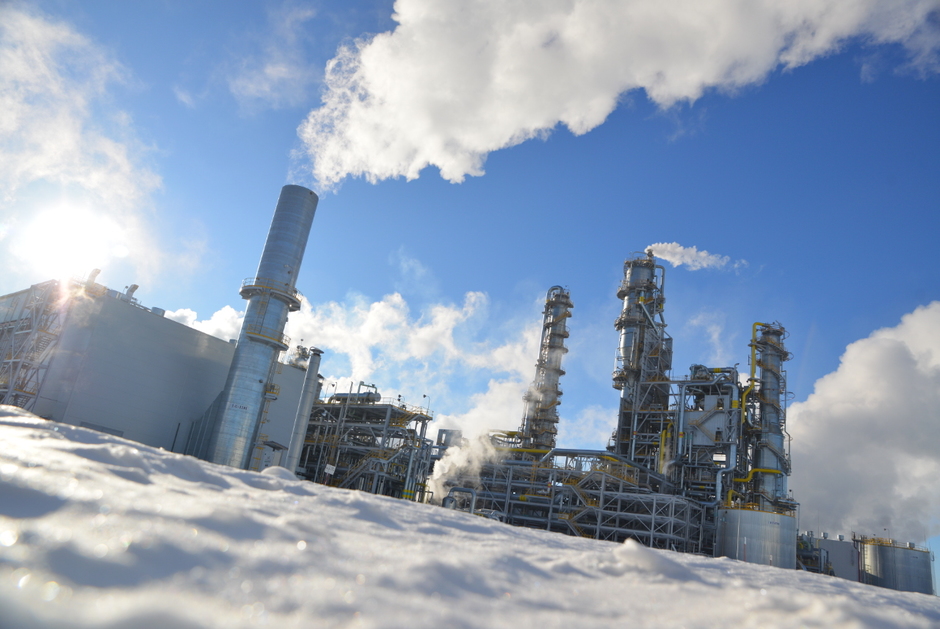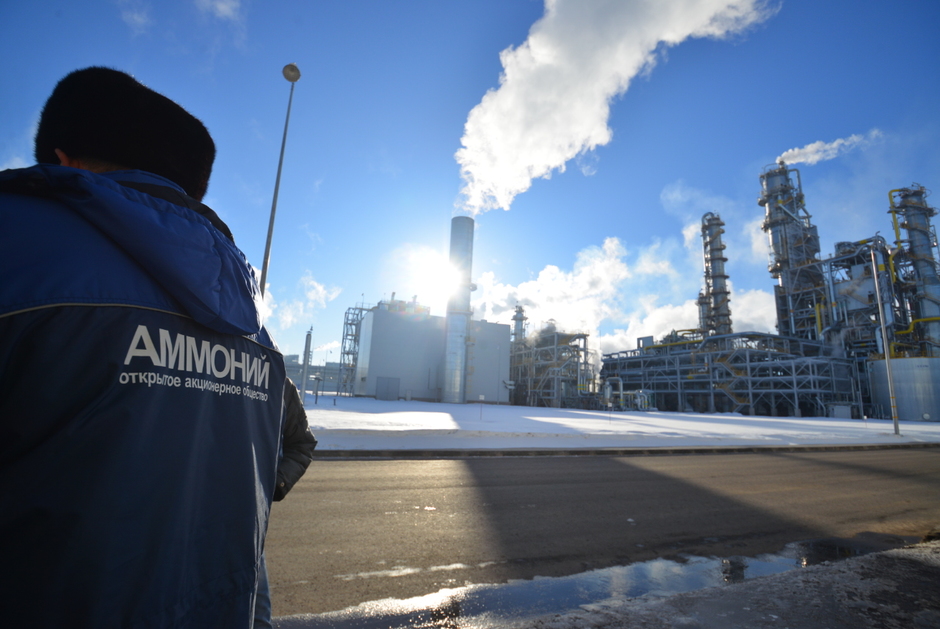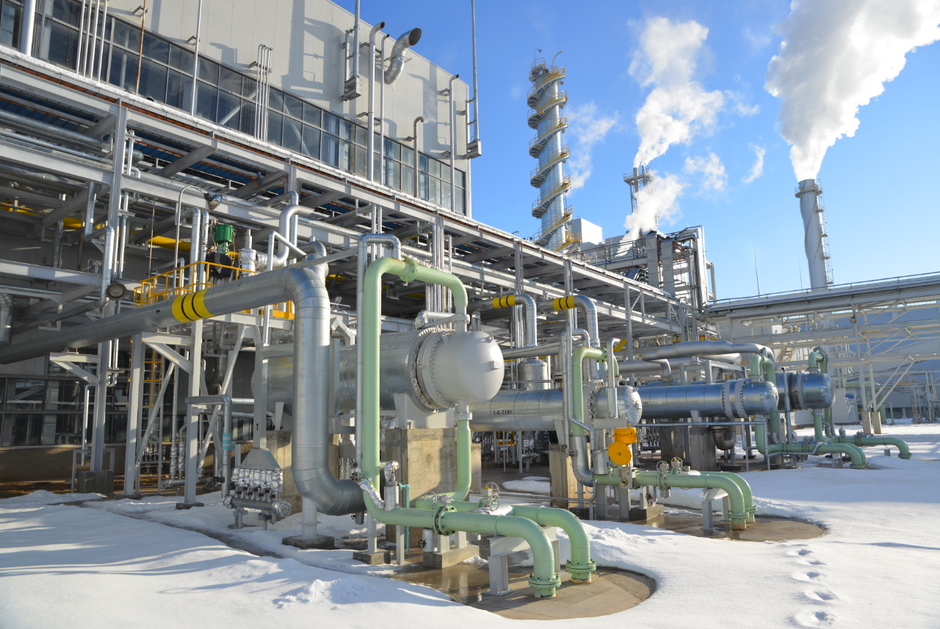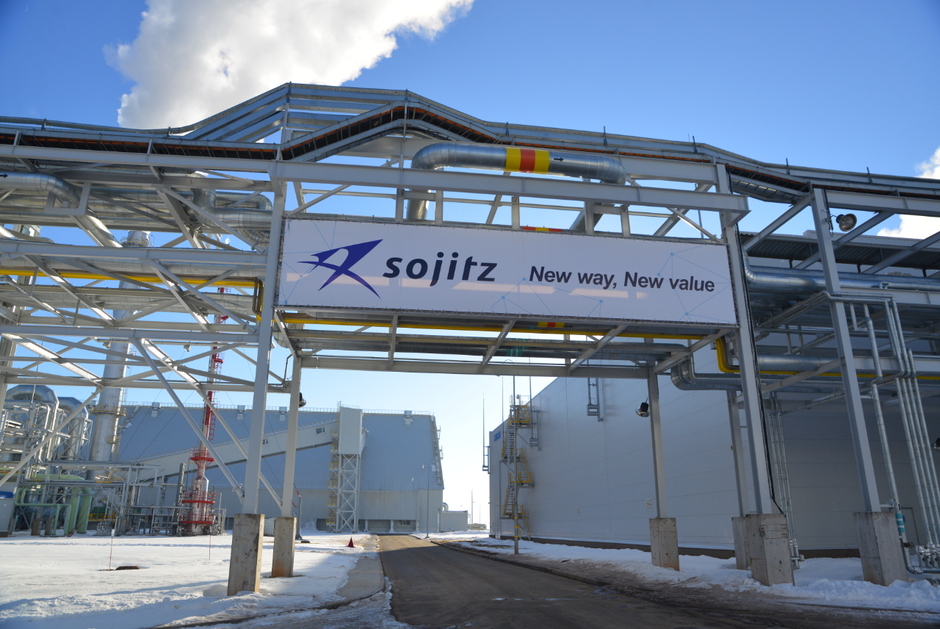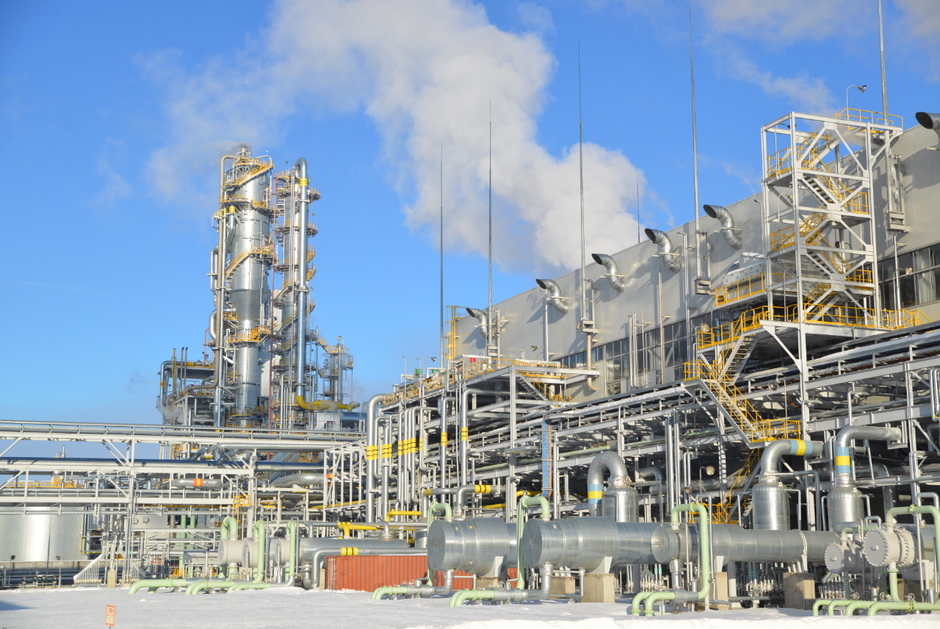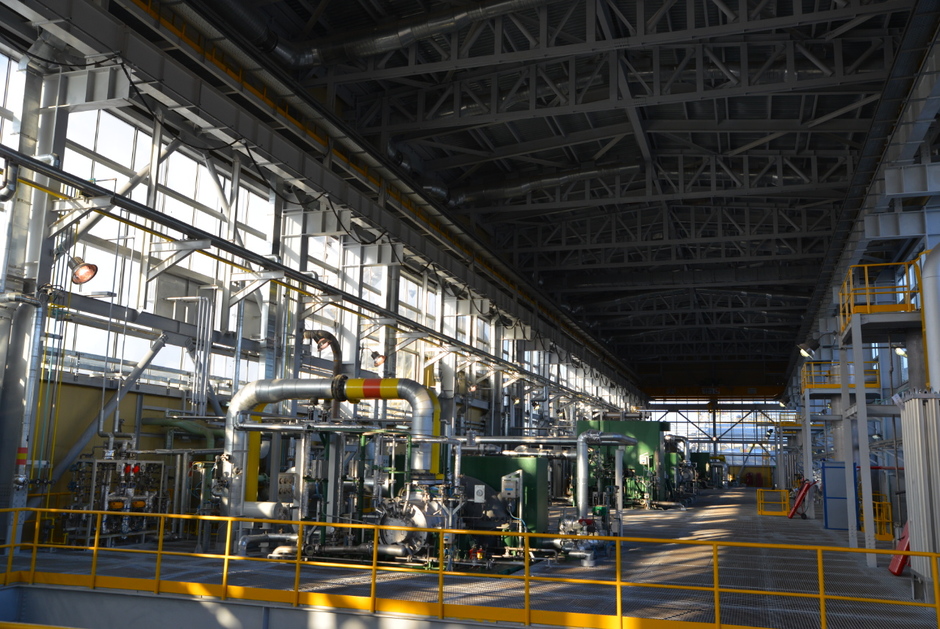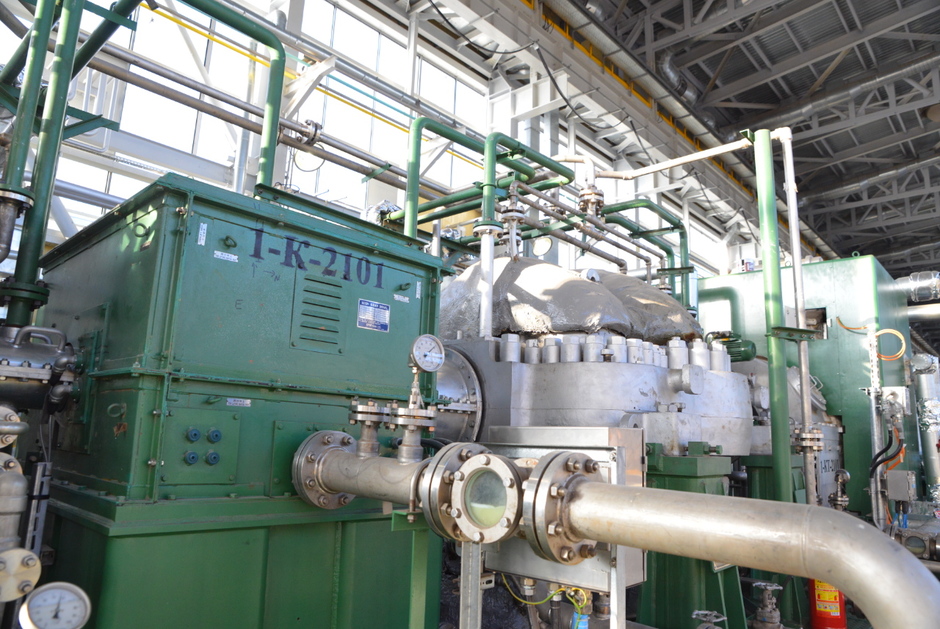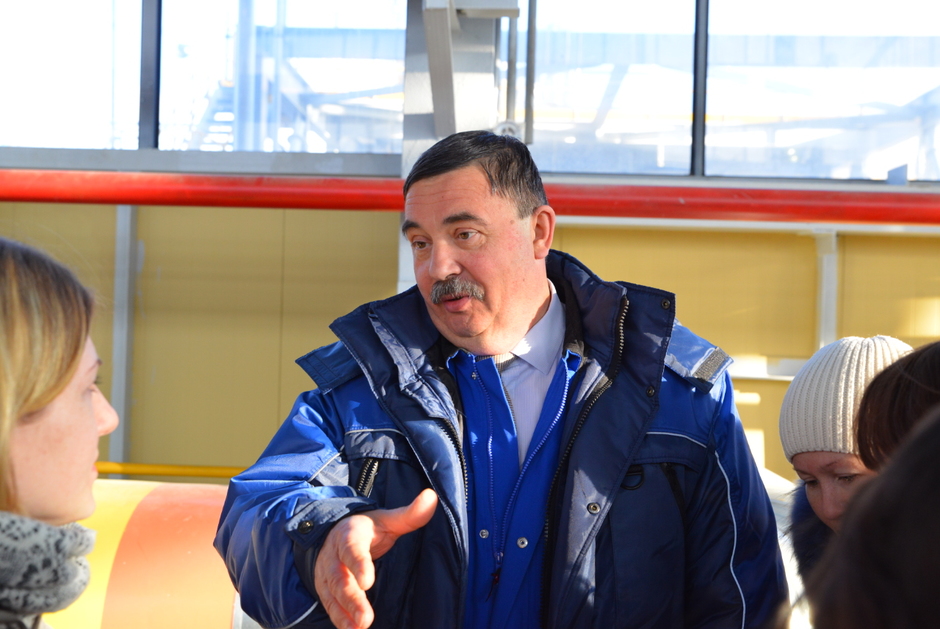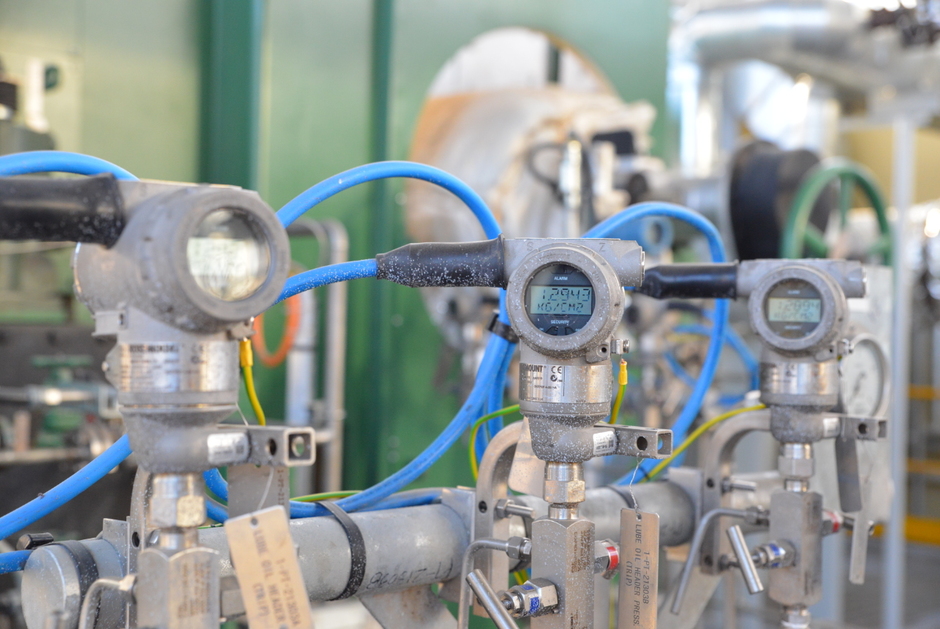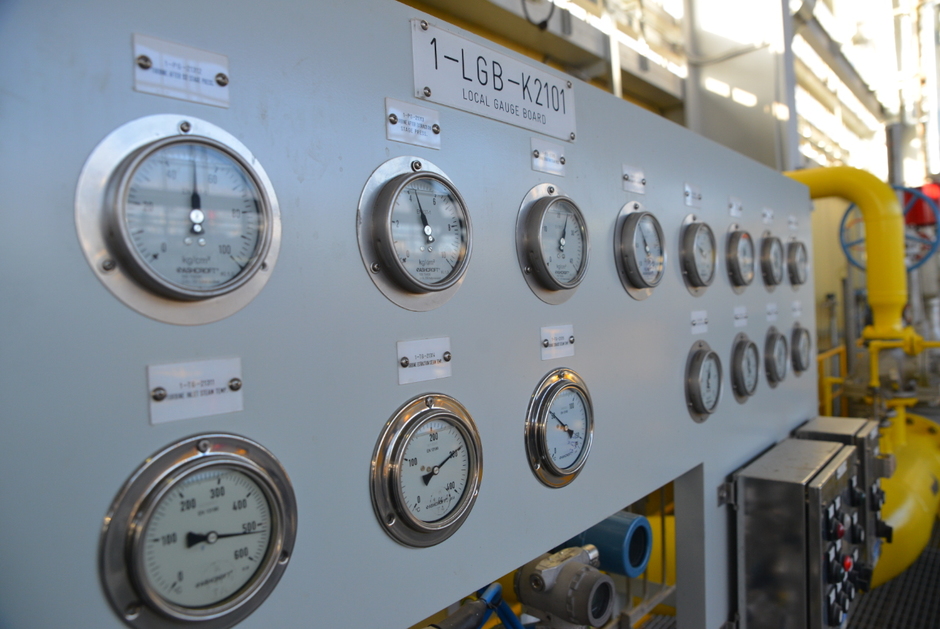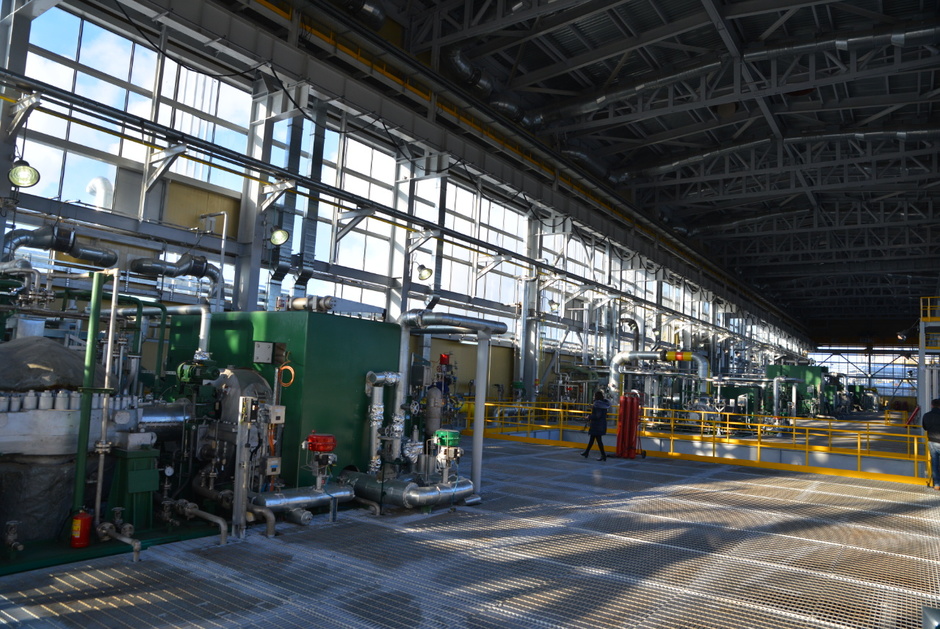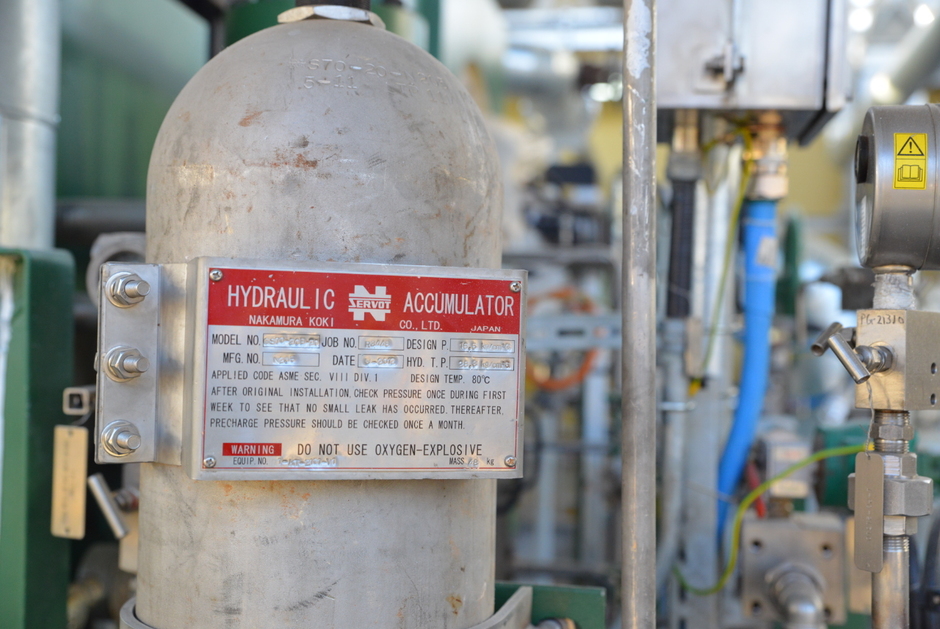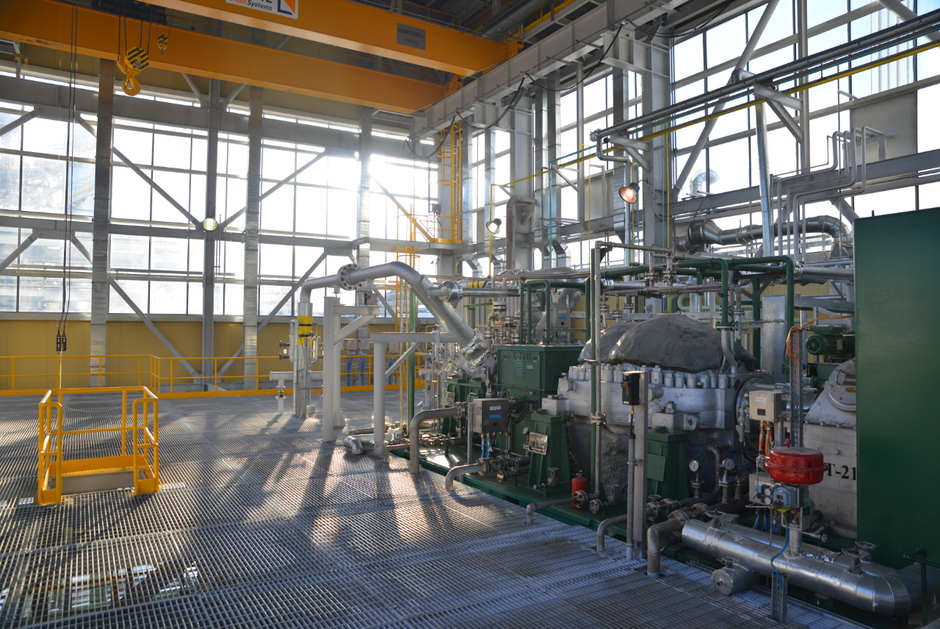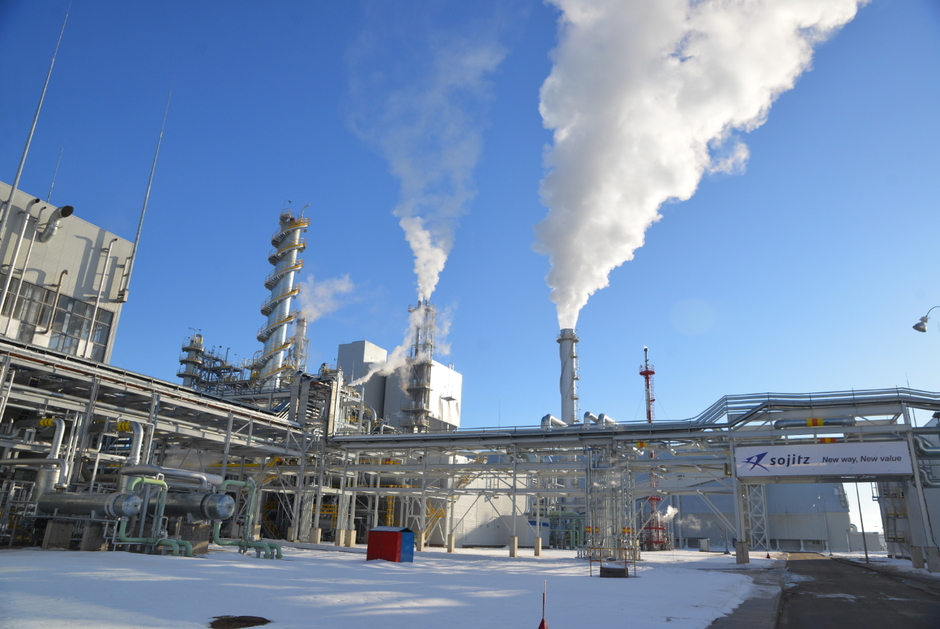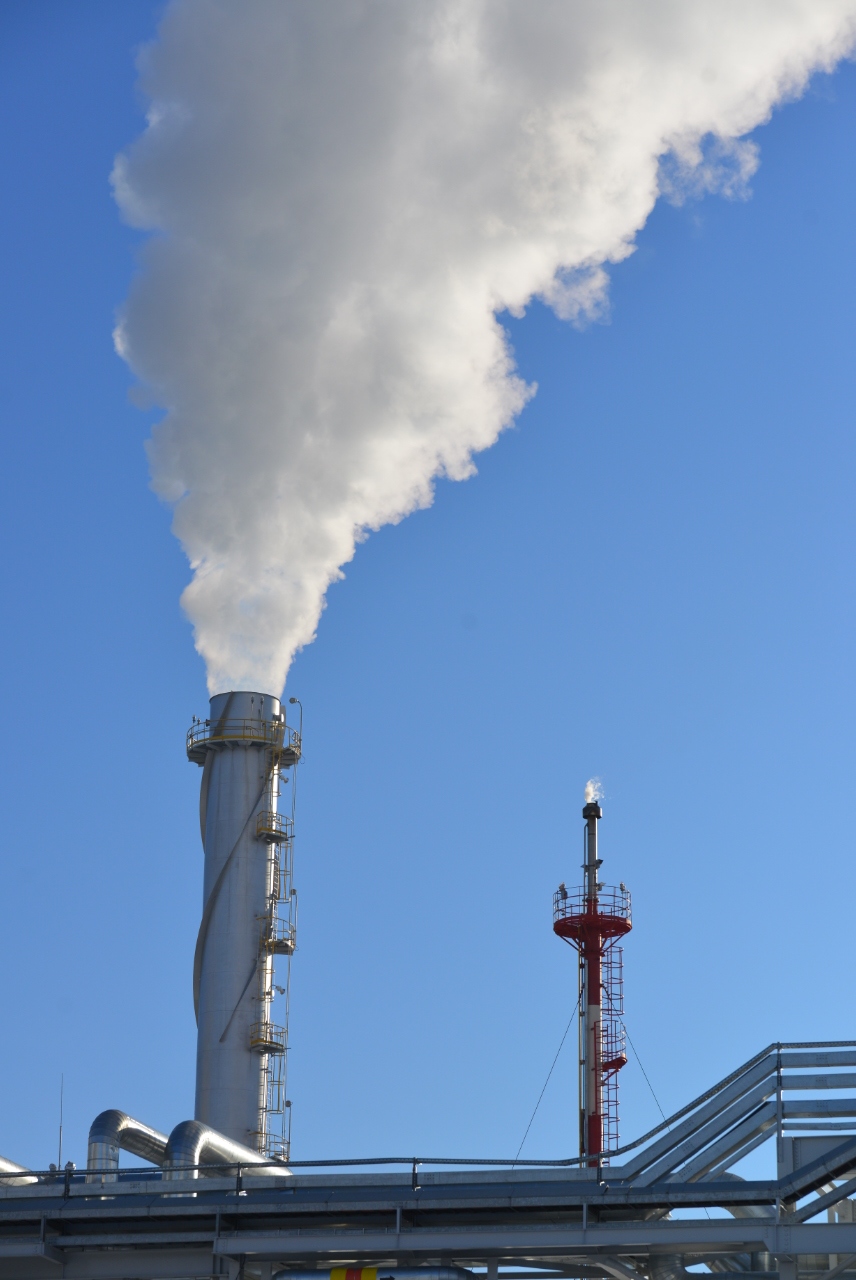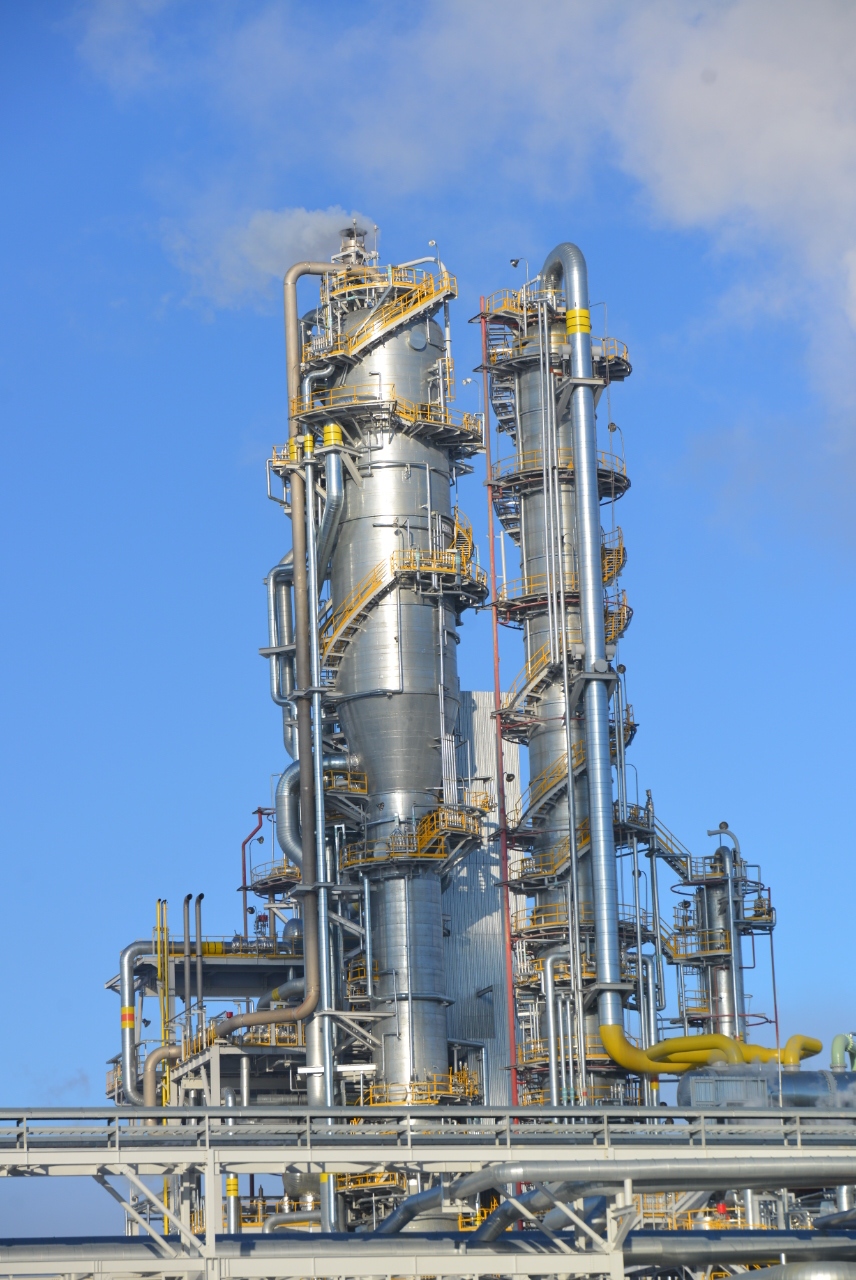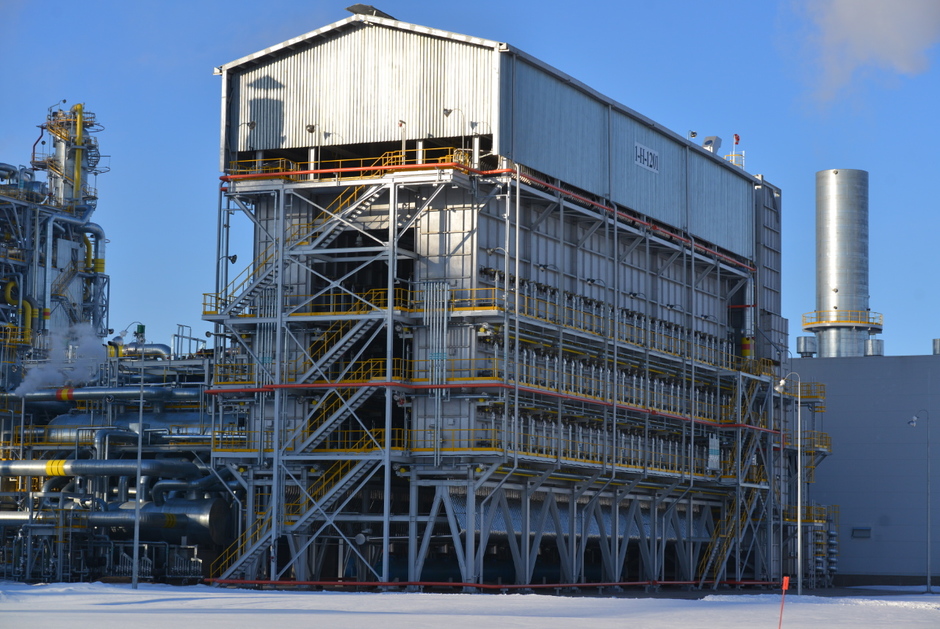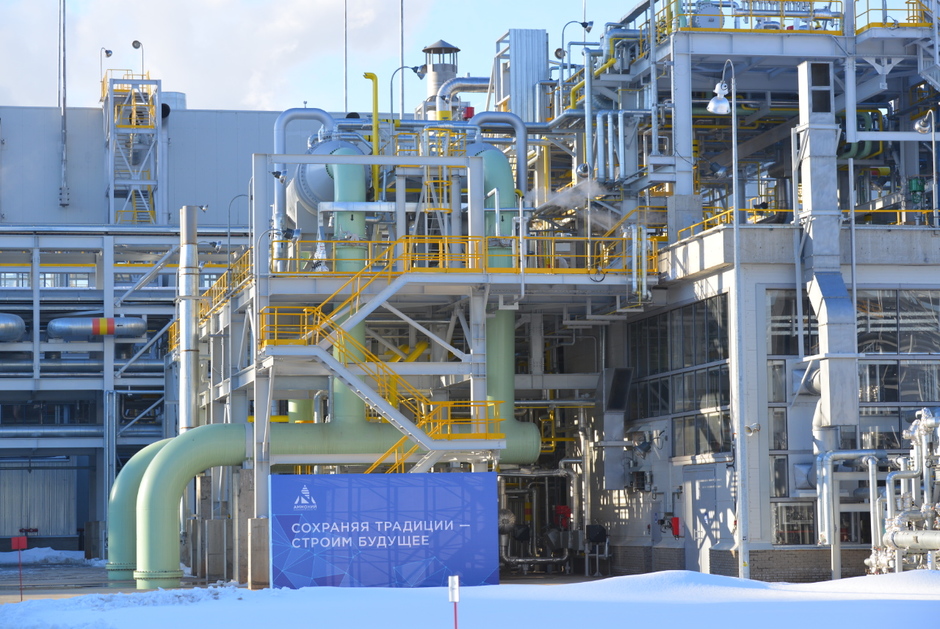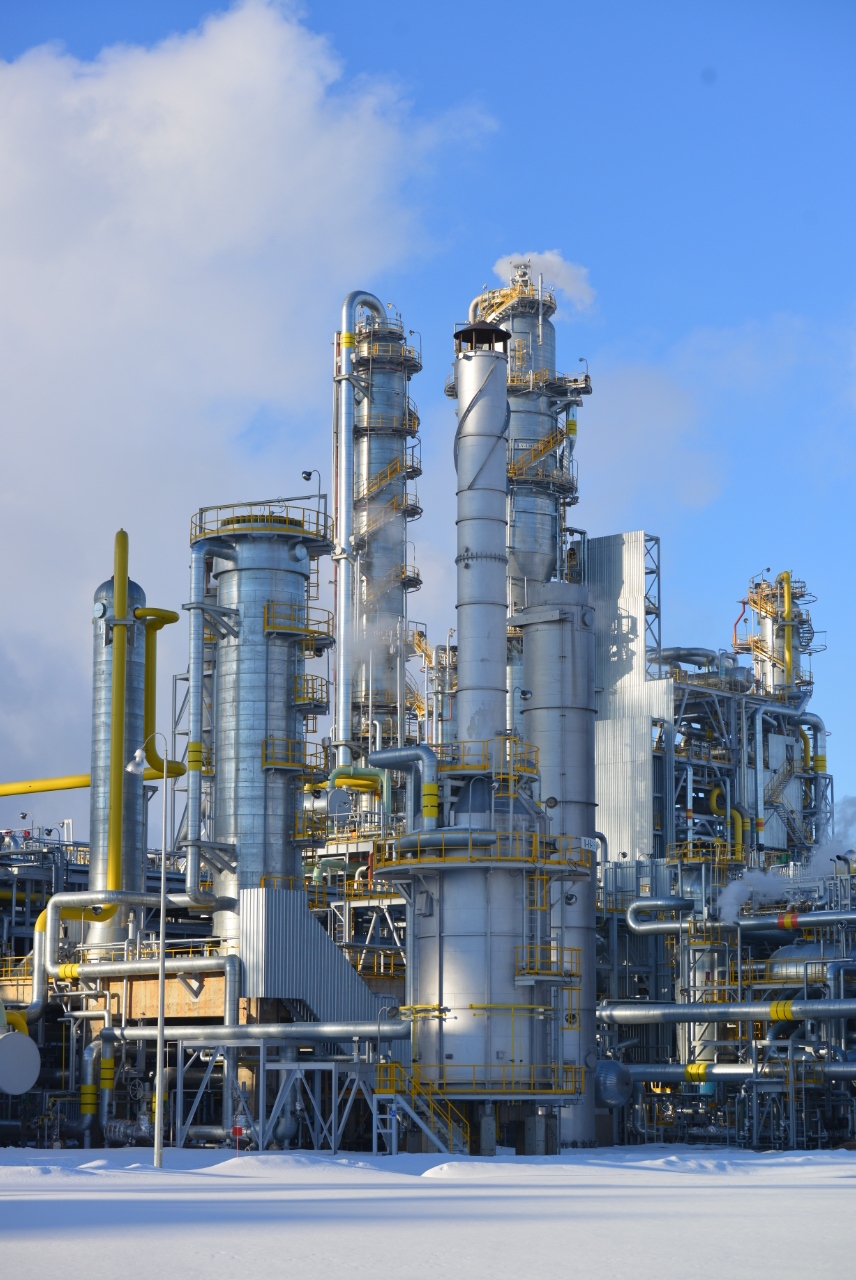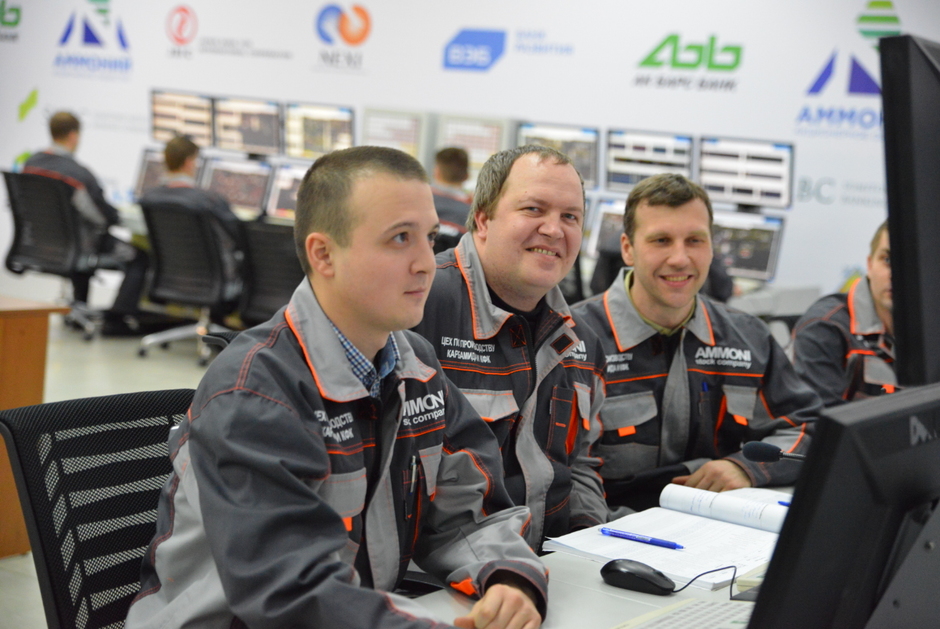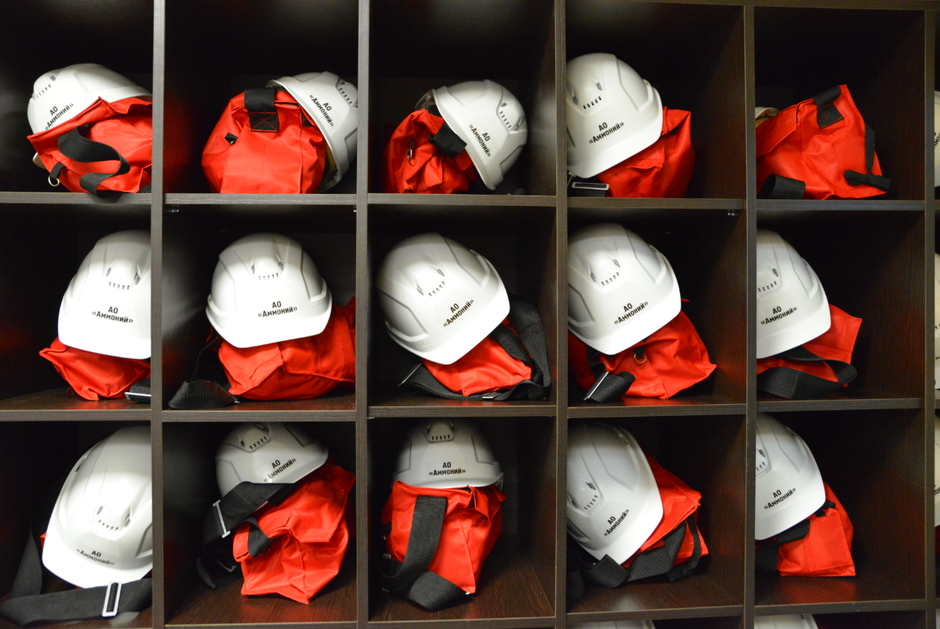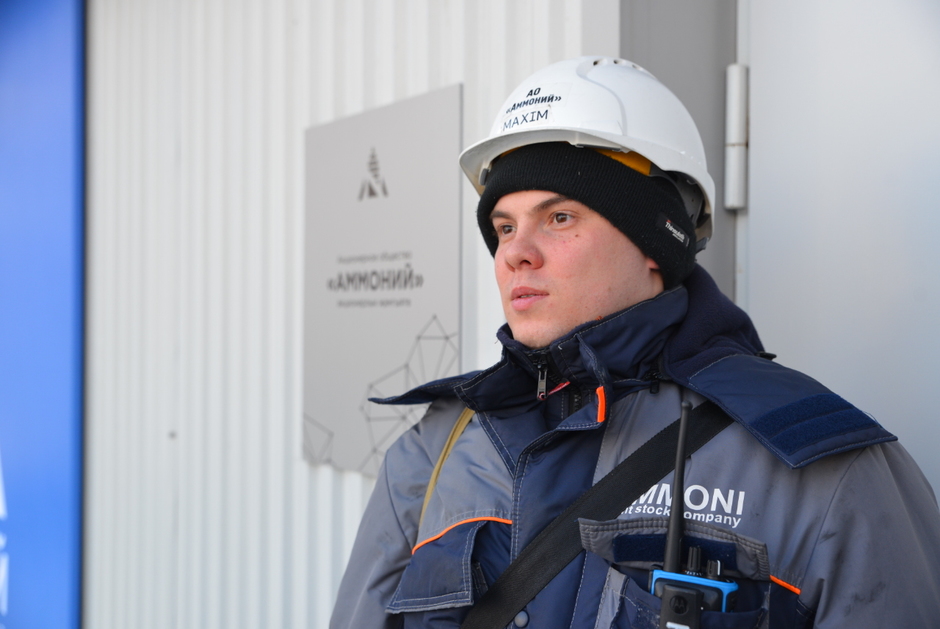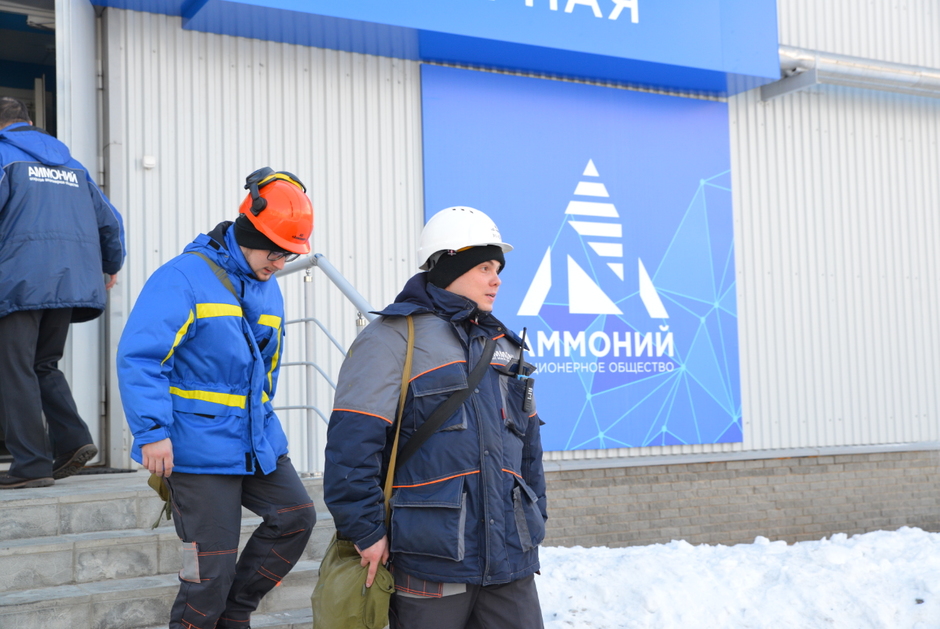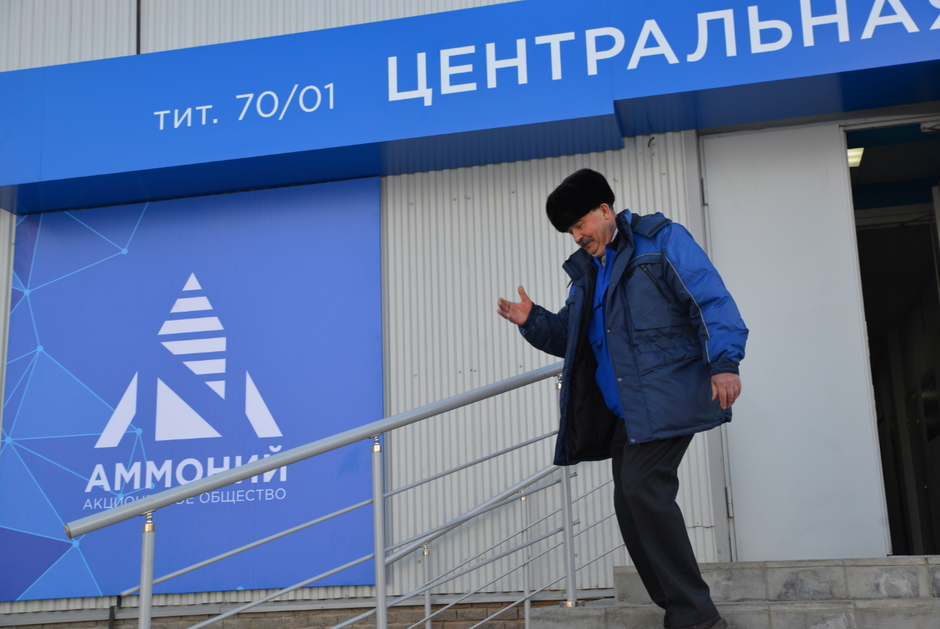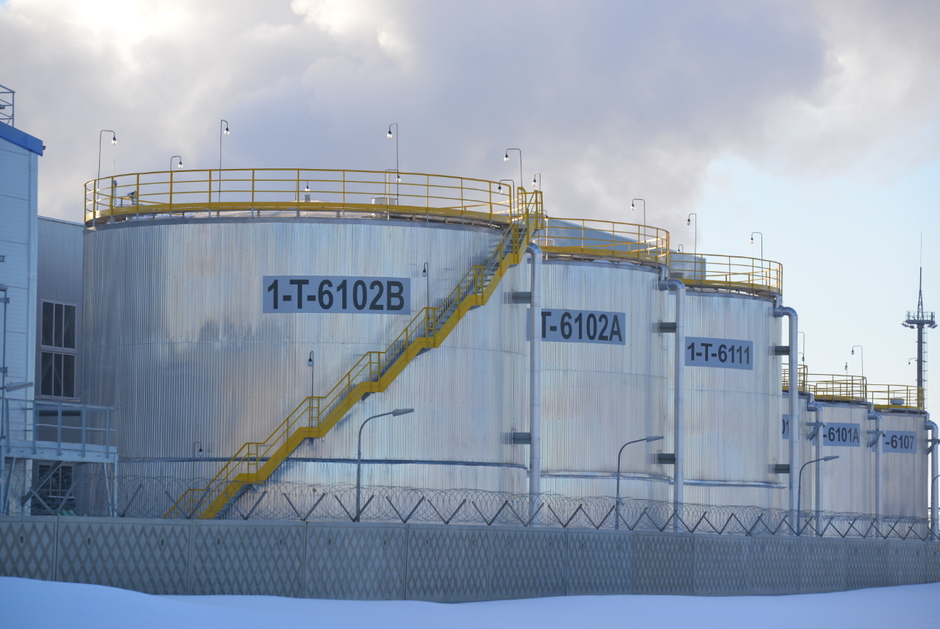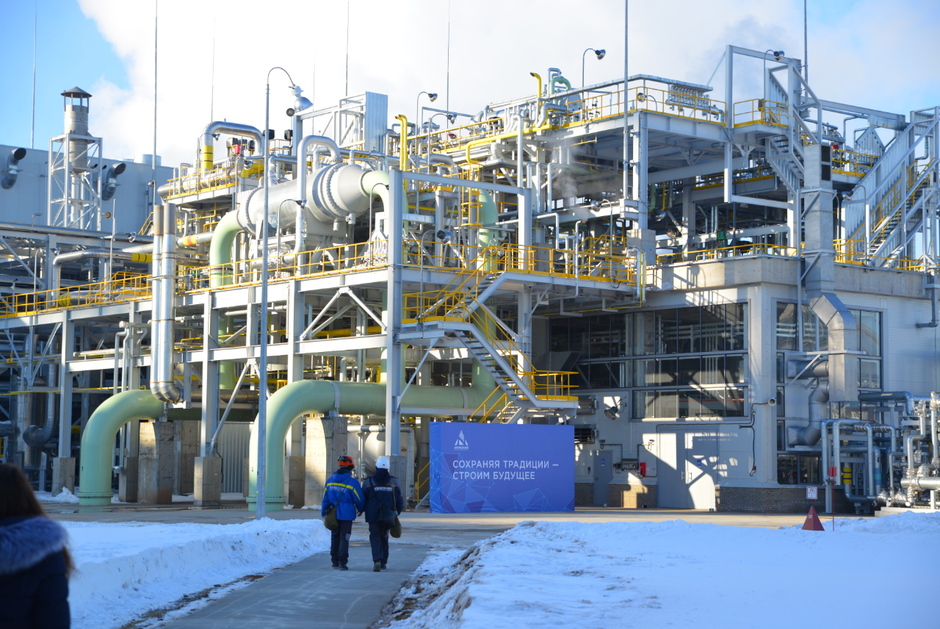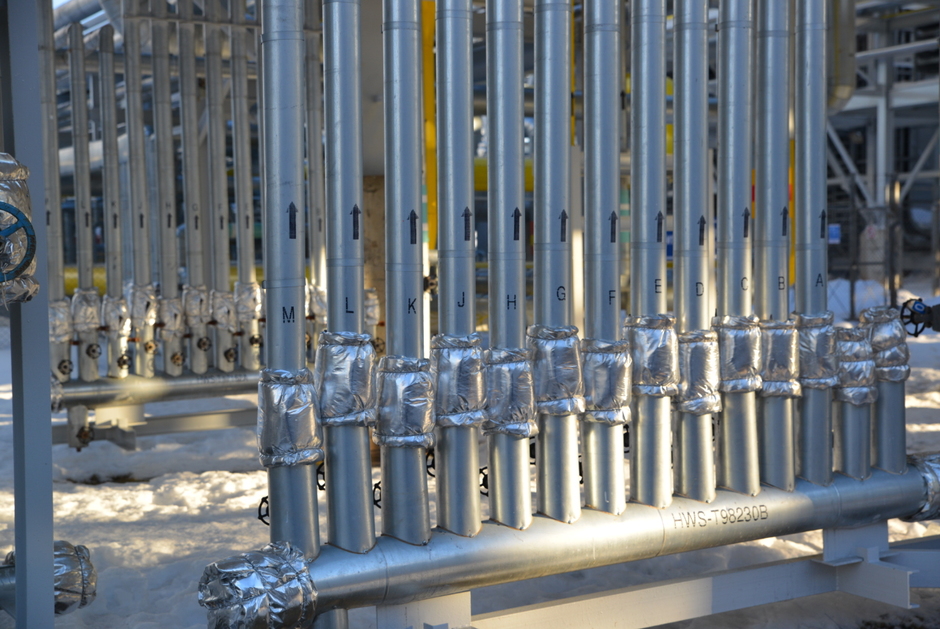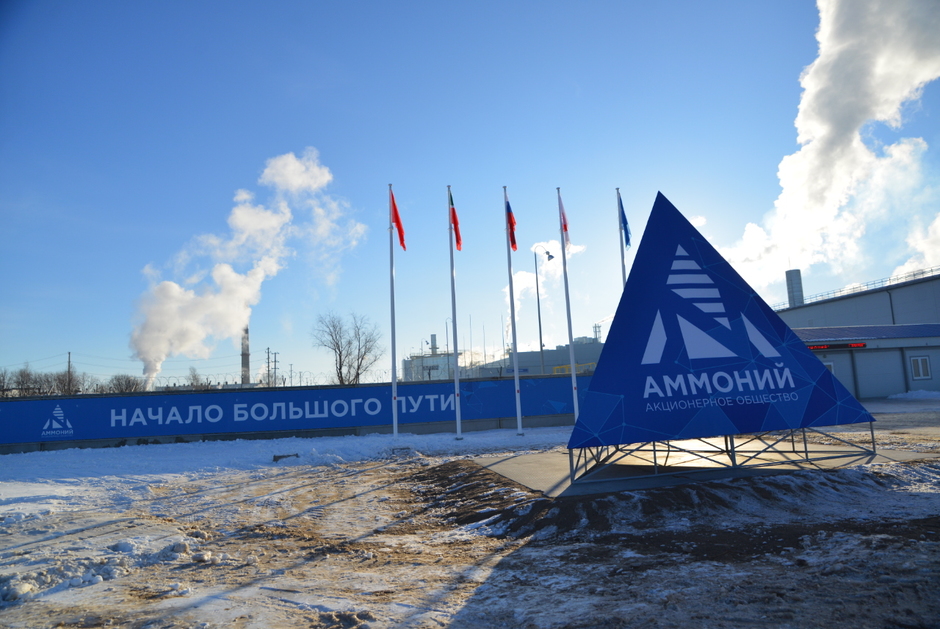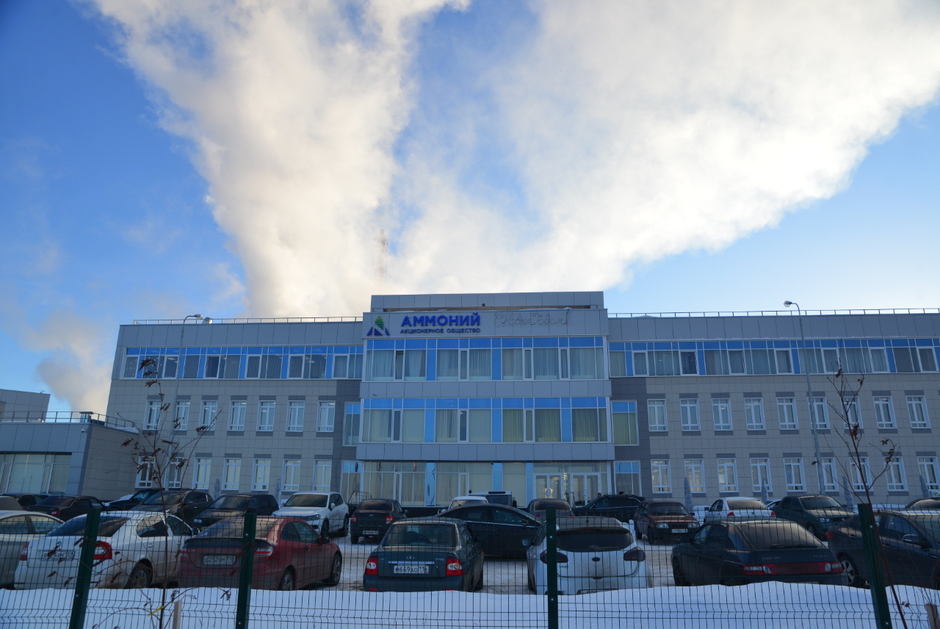Ammonia got the first reaction – from Vladimir Putin
Chemical giant awaited the command to launch
On 12 February, the official command to the launch of the integrated chemical complex of JSC Ammonia at $1.4 billion was given in Mendeleevsk. Built in alliance with Chinese and Japanese partners of Russia, it could not be started without the head of the state — the long-awaited command 'Start up!' was given by Vladimir Putin in the late evening from Naberezhnye Chelny. The correspondent of Realnoe Vremya visited the plant.
The command was given via video
Ammonia reached its planned production capacity in January. On 12 February, it was officially. The President of the Russian Federation Vladimir Putin arrived in Naberezhnye Chelny, therefore, the whole schedule of the visit of the head of the state has shifted. Only at 20.50 on a large screen, the President of the Russian Federation appeared together with Tatarstan President.
The ceremony took place via video conference. Tech format gave the best fit to the plant: Ammonia is distinguished by a high degree of automation. Only 400 people serve 150 production facilities, and, for example, at a large compressor unit for compression of natural gas there is only one employee.
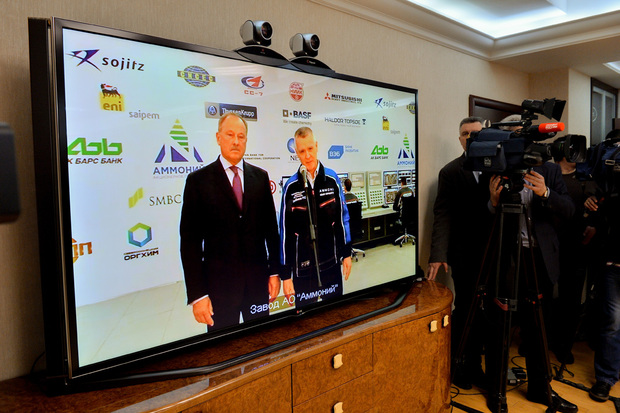
The Chairman of the Board of Directors of JSC Ammonia Rinat Khanbikov reported that the complex was ready for launch, pre-commissioning work had been completed, all the permission documentation had been obtained and the production was ready to perform the design capacity. RT President, in his turn, thanked Vladimir Putin for the approval and support of the project.
The Russian President gave the command 'Start up!' and after that the process of granulation of carbamide started. White powder appeared on a conveyor belt — actually, the same carbamide.
Japanese loan under Russian guarantee
Now, the factory can produce 717 thousand tonnes of ammonia per year (with combined production of 483.7 thousand tonnes of ammonia and 233.8 thousand tonnes of methanol), 330 thousand tonnes of ammonium nitrate, more than 700 thousand tonnes of granulated carbamide. Although the majority of Russian producers of nitrogen fertilizers export to 80% of products, Ammonia is planning to supply only carbamide to foreign markets now. Ammonia signed contracts for the export of 500 thousand tonnes with the world leading traders — currently, the documents of export transactions have already been opened in Vnesheconombank. Sales of other types of nitrogen fertilizers will be carried out in the domestic market. 233.8 thousand tonnes of methanol will be produced exclusively for the needs of PJSC Nizhnekamskneftekhim. According to the Chairman of the Board of Directors of JSC Ammonia Rinat Khanbikov, the annual revenue of industry depending on the world market prices will amount to 20 billion rubles.
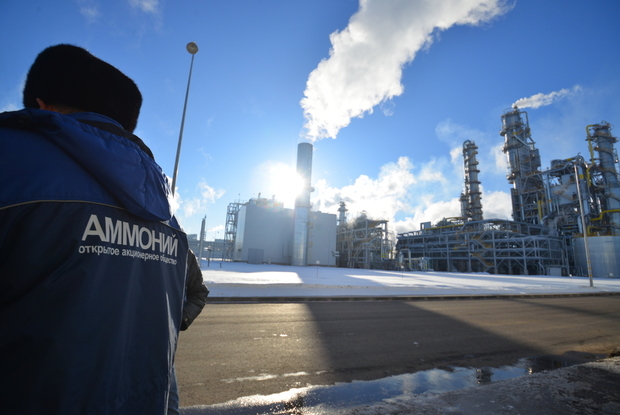
We should remember that Ammonia was built on borrowed funds. As Rinat Khanbikov explained to the correspondent of Realnoe Vremya, for this they took related loan from export-import bank of Japan at $1.4 billion under the guarantee of Vnesheconombank, which later served as Russian lender to JSC Ammonia. In other words, the funding transaction was carried out at the expense of credit lines extended to VEB by Japanese financial institutions, reported the press service of VEB. The credit agreement for a loan at $1.4 billion was signed shortly after the official signing in Tokyo of the contract on the construction of the complex in November 2010.
'During four years of construction, JSC Ammonia could not pay the loan, so the amount of debt including accrued interest amounted to $2.15 billion,' said Rinat Khanbikov in response to the issue of discrepancies in the figures in the total cost. Payback period is 14.5 years from the beginning of the conclusion of the contract.
MHI started to build on turnkey basis
The production of Ammonia is based on the technology of natural gas processing with depth to 94%. In the high processing of gas the Russian customers have long relied on foreign developers, as today there is no functioning system for the development and generation of domestic new technologies. Ammonia is not an exception. The licensor is Danish Halder Topce. However, the licensees are working in tandem with foreign contractors. Being out of competition on the Russian market, they became full contractors of the construction cycle. Under this scheme the construction of Ammonia was held.
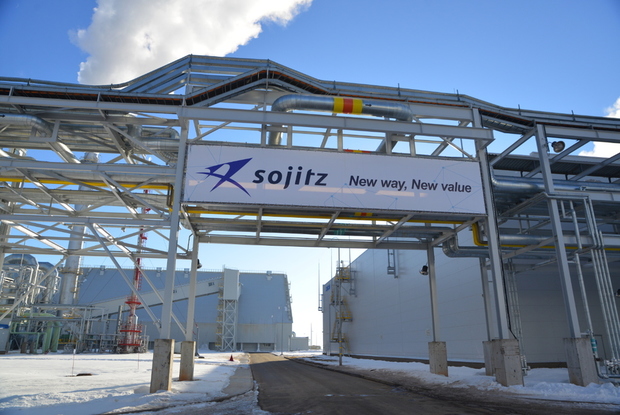
As Rinat Khanbikov told, according to Danish license only 5 foreign companies can work, one of them is Mitsubishi Heavy Industries Ltd (MHI), which is the head of the construction consortium. It also includes Japanese Sojitz Corporation Ltd and China National Chemical Engineering Group Corp (CNCEC).
It is quite difficult for the Russian companies to join this closed union. But it is possible — as an adapter of foreign projects. So, Dzerzhinsk NIIK has managed to consolidate — the project institute has completed the adaptation of the base project of MHI to Russian norms and rules, then developed project and working documentation.
MHI has performed the contract on turnkey basis. As Rinat Khanbikov told, many construction companies prefer to work on the principle of the open book, when construction costs are increasing every year. In contrast, MHI adopted a budget and fully fulfilled the obligations on the terms and on the cost of construction.
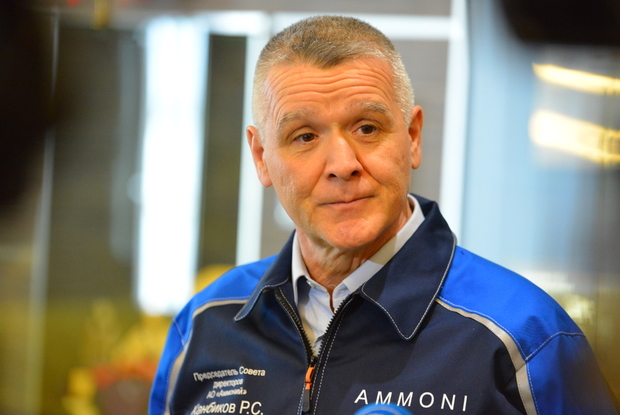
'Usually, by the end of construction of such complexes, the cost increases 2-3 times, and only 3-4% are completed according to the approved budget. So, hats off to foreign builders,' admitted Khanbikov. According to him, the consortium has fully complied with 'technology' — the supply and installation of technological equipment and lines. It has its own characteristics and requires its own professionals.
Russian contractors have implemented works on construction and installation of utility and energy infrastructure. The general contractor was NIIK, which subcontracted 66 construction companies. It is clear that the foreign consortium has performed the largest volume of works. According to Rinat Khanbikov, the consortium had works at $1.05 billion, the Russian builders — $325 million.
Despite the distribution of responsibilities, the builders commissioned the object on time. JSC Ammonia got the license from the Volga region administration of Rostekhnadzor on compliance with built on the territory of Tatarstan complex on production of methanol, ammonia and carbamide by technical regulations from 30 December 2015, and from 1 January 2016 it began to repay the loan to Vnesheconombank.
